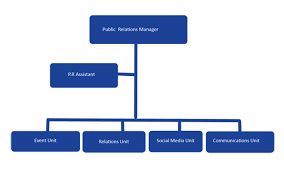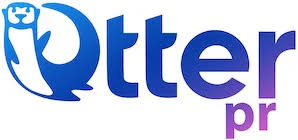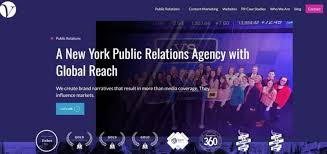Unlocking Success: The Impact of Public Relations Marketing Firms on Brand Growth
The Role of Public Relations Marketing Firms in Today’s Business Landscape
In the fast-paced and competitive world of business, public relations marketing firms play a crucial role in helping companies navigate the complex landscape of communication and promotion. These firms are tasked with developing and implementing strategic communication plans to enhance brand visibility, reputation, and engagement with target audiences.
Public relations marketing firms combine traditional PR strategies with modern marketing techniques to create impactful campaigns that resonate with consumers. They work closely with clients to understand their goals, values, and target market, crafting tailored messages that effectively convey the brand’s story and key messages.
One of the key functions of public relations marketing firms is media relations. They help companies secure press coverage, manage relationships with journalists and influencers, and respond to media inquiries. By building strong connections with the press, these firms can amplify a brand’s reach and credibility through earned media placements.
Another important aspect of public relations marketing firms is crisis management. In today’s digital age, news travels fast, and a company’s reputation can be at stake within minutes. These firms are equipped to handle crises swiftly and effectively, mitigating damage to a brand’s image and maintaining trust among stakeholders.
Furthermore, public relations marketing firms excel in creating engaging content across various platforms. From social media posts to press releases to blog articles, they develop compelling narratives that captivate audiences and drive engagement. By leveraging storytelling techniques and multimedia elements, these firms help brands connect with consumers on a deeper level.
Overall, public relations marketing firms play a vital role in shaping how companies communicate with their audiences. By providing strategic counsel, creative solutions, and seamless execution, these firms help businesses build strong relationships with their stakeholders and achieve their communication goals in today’s dynamic business environment.
6 Essential Tips for Effective Public Relations Marketing Firms
- Understand your target audience and tailor your messaging accordingly.
- Build strong relationships with media outlets to secure press coverage for your clients.
- Stay up-to-date with industry trends and news to remain competitive in the market.
- Utilize social media platforms effectively to amplify your clients’ messages and reach a wider audience.
- Measure the success of your PR campaigns through key performance indicators and adjust strategies as needed.
- Maintain transparency and honesty in all communications to build trust with clients, stakeholders, and the public.
Understand your target audience and tailor your messaging accordingly.
To succeed in the realm of public relations marketing firms, it is essential to thoroughly comprehend your target audience and customise your messaging to resonate with them effectively. By understanding the demographics, preferences, and behaviours of your audience, you can craft messages that are compelling, relevant, and impactful. Tailoring your communication to address the specific needs and interests of your target market not only enhances engagement but also fosters a deeper connection with your audience, ultimately leading to more successful outcomes for your brand.
Build strong relationships with media outlets to secure press coverage for your clients.
Building strong relationships with media outlets is a fundamental tip for public relations marketing firms seeking to secure press coverage for their clients. By nurturing connections with journalists, editors, and influencers, PR firms can enhance their clients’ visibility and credibility in the media landscape. These relationships not only help in securing valuable media placements but also enable PR professionals to pitch relevant stories effectively and maintain a positive rapport with key media contacts. Ultimately, fostering strong ties with media outlets is essential for PR firms to successfully amplify their clients’ brand messaging and reach target audiences through trusted channels.
Stay up-to-date with industry trends and news to remain competitive in the market.
To stay competitive in the market, it is essential for public relations marketing firms to stay abreast of industry trends and news. By keeping a finger on the pulse of the ever-evolving landscape, these firms can adapt their strategies and offerings to meet the changing needs and preferences of clients and consumers. Being informed about the latest developments allows PR marketing firms to innovate, anticipate market shifts, and position themselves as valuable partners in helping businesses navigate the dynamic world of communication effectively.
Utilize social media platforms effectively to amplify your clients’ messages and reach a wider audience.
To maximise the impact of your clients’ messages and expand their reach, it is essential for public relations marketing firms to harness the power of social media platforms effectively. By strategically utilising platforms such as Facebook, Twitter, Instagram, and LinkedIn, firms can amplify the visibility of their clients’ content, engage with a broader audience, and foster meaningful connections that drive brand awareness and loyalty. Through targeted messaging, compelling visuals, and interactive features, public relations marketing firms can leverage social media to create a dynamic online presence that resonates with diverse audiences and enhances the overall communication strategy.
Measure the success of your PR campaigns through key performance indicators and adjust strategies as needed.
To ensure the effectiveness of your public relations marketing campaigns, it is essential to measure success through key performance indicators (KPIs) and be prepared to adjust strategies accordingly. By tracking metrics such as media coverage, audience engagement, website traffic, and brand sentiment, you can gain valuable insights into the impact of your PR efforts. This data-driven approach allows you to identify what is working well and what areas may require improvement, enabling you to refine your strategies for optimal results. Adapting to changing trends and consumer preferences based on KPI analysis ensures that your PR campaigns remain relevant and impactful in reaching your communication objectives.
Maintain transparency and honesty in all communications to build trust with clients, stakeholders, and the public.
Maintaining transparency and honesty in all communications is a fundamental tip for public relations marketing firms. By being open and truthful in their interactions, these firms can build trust with clients, stakeholders, and the public. Transparency fosters credibility and integrity, demonstrating a commitment to ethical practices and genuine engagement. When communication is clear and honest, it establishes a strong foundation for long-lasting relationships and positive reputation management. In an era where authenticity is valued more than ever, upholding transparency in all communications is key to establishing trust and credibility in the eyes of all stakeholders.












